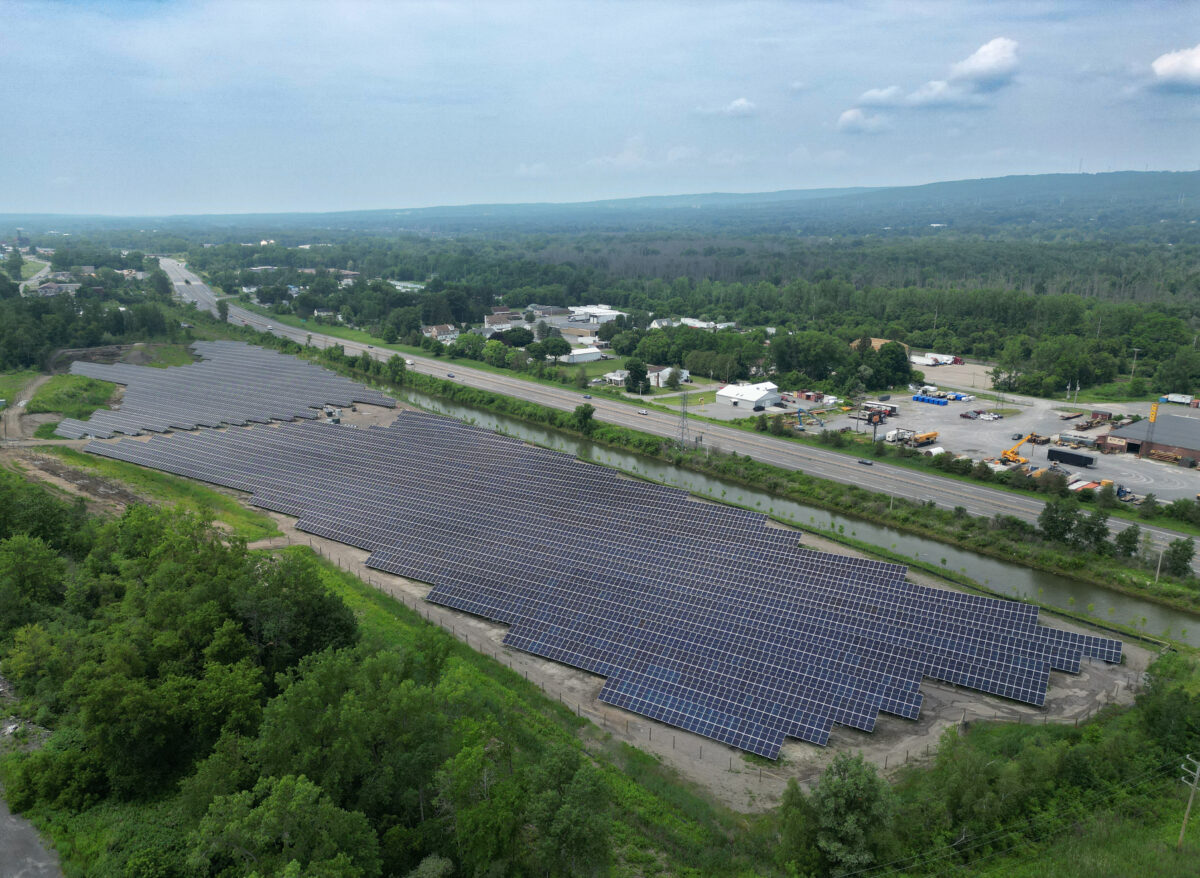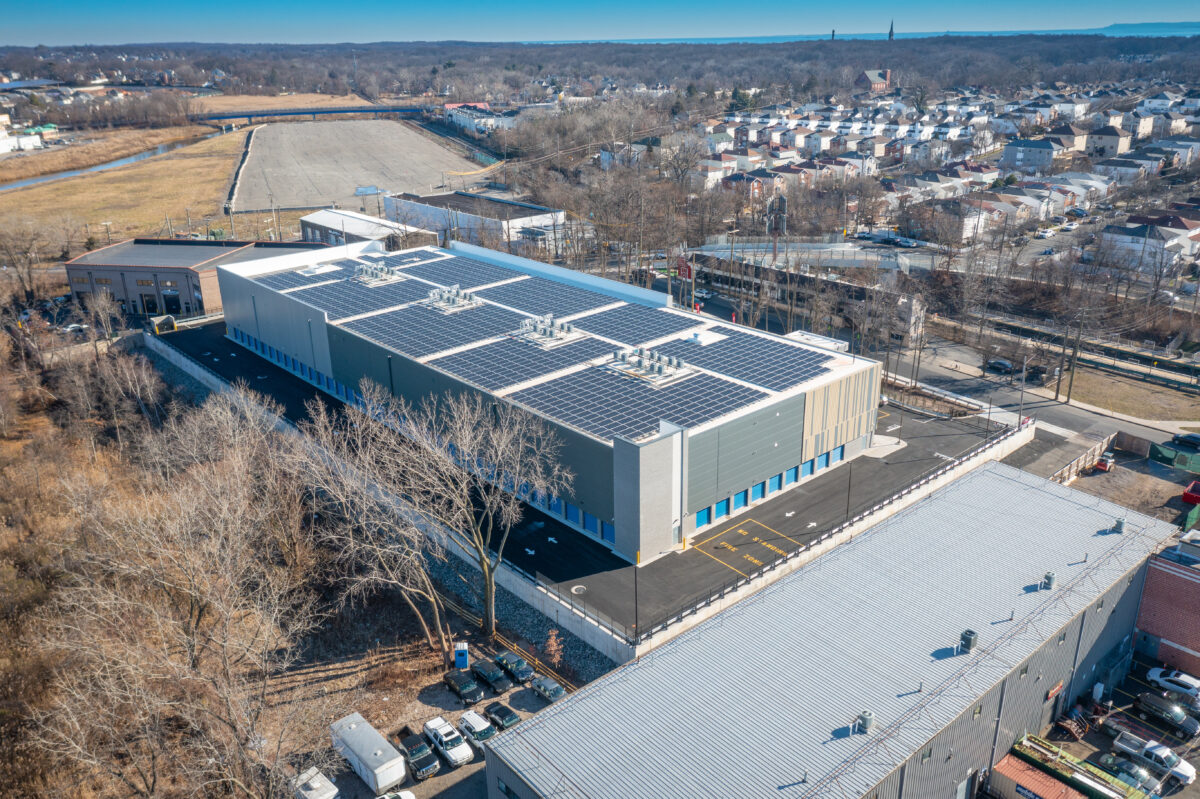Understanding Solar Lease Agreements and Power Purchase Agreements in Distributed Energy
February 26, 2024Distributed energy systems present an excellent avenue for real estate properties to achieve their ESG goals, enhance operational efficiency, and reduce operational costs. Despite these advantages, the substantial upfront costs and ongoing maintenance challenges deter many real estate owners from embracing and expanding these systems across their portfolios.
Third-party ownership models, however, can help real estate investment organizations scale renewable energy systems by designing, permitting, and financing deployment. Many organizations are reaping the benefits of distributed energy systems across their commercial and industrial properties.
But what type of third-party agreement is most suitable? In this blog, we delve into the benefits and distinctions between two prevalent models: Power Purchase Agreements and solar lease agreements. By understanding these models, real estate owners can make informed decisions that align with their goals and circumstances.
What is a Power Purchase Agreement (PPA)?
A Power Purchase Agreement (PPA) is a model where a developer installs and operates renewable energy systems, like community solar or rooftop solar, and a customer agrees to purchase the power produced by the system while receiving rental payments for the space used. Real estate owners are charged for the energy consumed throughout the length of the agreement period, but only pay for the amount of electricity that they use.
This offers significant benefits to those looking to consume solar energy, yet are unable or unwilling to finance the project for themselves. High interest rates on solar loans have made it more challenging to fund cost-saving solar energy projects, and reduces the potential savings that an organization can leverage. By leveraging a third-party agreement, organizations can utilize clean energy more quickly at an affordable rate.
ESG Goals: A significant benefit provided by PPAs is the ability for customers to purchase Renewable Energy Certificates (RECs) generated by the distributed energy system. RECs are legal tools for accounting for, tracking, and assigning ownership over the generation and use of electricity produced by PV solar panels. They can be bought and sold to make claims around the use of sustainable energy, and are distributed for every mWh generated and delivered. For organizations that are committed to ESG goals, RECs are essential for measuring and proving commitment to sustainability, particularly as stricter rules and regulations emerge around sustainability to substantiate renewable energy use.
Availability: Most states have statutes that refer to or define PPAs within their jurisdiction, but some states limit or prohibit their use. This is due to existing legislation that has already been in place for decades in monopoly territories – no laws have originated specifically to prevent PPA ownership, and in general, no state has specifically outlawed them. To learn about the legal status of PPA ownership in your territory, contact our team to learn more.
What is a Solar Lease Agreement for Renewable Energy?
Solar lease agreements share many of the same attributes of PPAs: a third party installs, operates, and maintains a solar energy system on a parcel of land in exchange for renewable energy. The biggest difference comes from the methods of payment. Unlike a PPA, the monthly costs of solar lease agreements are fixed. This means that those who enter solar lease agreements will pay predictable costs every month irrespective of the amount of energy used on a property.
ESG Goals: Unlike PPAs, lease agreements do not monitor the generation of RECs. For organizations looking to meet sustainability goals, this can be a challenge as ESG goals often depend on producing measurable results. While solar lease agreements generate the same clean energy that PPAs offer, opting for the former provides less tangible results that can’t be communicated as easily to stakeholders and regulatory bodies.
Availability: Many of the states that limit or prohibit third-party PPAs explicitly allow for leasing agreements of distributed energy systems. As the third-party owner is providing an electricity-generating asset rather than directly selling electricity to a customer, many of the legal regulations around lease agreements are significantly more relaxed. This means that while lease agreements may provide less reliable cost savings, they are generally less contested.
Key Differences Between Power Purchase Agreements and Solar Lease Agreements
Power Purchase Agreements and solar lease agreements share many of the same attributes. Under both, providers install, maintain, and own the solar energy systems on a property, reducing the burden of financing and operating these systems.
The key difference comes down to the methods of payment. Under a solar lease agreement, tenants who use the energy pay a fixed cost every month. PPAs only charge for the amount of energy used. Organizations that want to pay a fixed cost every month opt towards solar lease agreements, but for more variable energy uses that may fluctuate seasonally, PPAs tend to provide a better value.
Generally speaking, PPAs tend to be more cost-effective, but legal definitions pertaining to the distribution of electricity mean that they are less available throughout the United States. They also more reliably produce RECs, meaning that organizations looking to achieve ESG goals may have greater difficulty proving the efficacy of their commitments towards sustainability with lease agreements.
Renewable energy systems offer predictable energy costs over a roughly 25-year lifespan, offsetting fluctuations that are likely to arise from continued fossil fuel usage. Third-party ownership models help mitigate upfront costs and ensure that systems are reliably producing energy throughout the engagement.
Catalyze helps commercial and industrial real estate owners gain access to the benefits of renewable energy. As a full-service clean energy transition partner, Catalyze finances, installs, owns, and operates integrated solar, storage, and EV charging systems, providing a seamless transition with lucrative sustainability benefits. Contact us for more information about our services.

